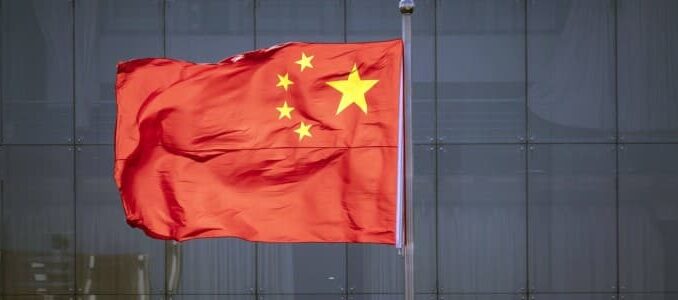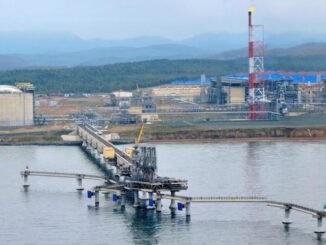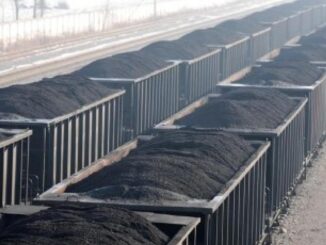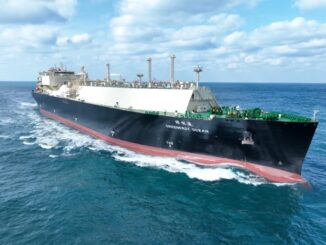
In a significant escalation of economic pressure on Iran, the United States imposed a new round of sanctions on October 9, 2025, targeting over 50 entities, individuals, and vessels involved in the trade of Iranian oil and liquefied petroleum gas (LPG).
This action, described by the U.S. Treasury as dismantling key elements of Iran’s energy export machine, specifically hits networks facilitating the shipment of Iranian crude to China, among other destinations.
In response, China has firmly pledged to safeguard its companies, underscoring ongoing tensions in global energy trade and U.S.-China relations.
The sanctions come at a time when Iran’s oil exports have reached a yearly high, with approximately 63.2 million barrels shipped in September 2025 alone, valued at around $4.26 billion.
Despite international restrictions, China remains Iran’s largest buyer, importing the bulk of its crude through independent “teapot” refineries and shadow fleets that evade detection. This latest barrage marks the fourth round of U.S. sanctions this year aimed at Chinese entities purchasing Iranian oil, building on previous actions in July and August.
Details of the New U.S. Sanctions
The U.S. Department of the Treasury’s Office of Foreign Assets Control (OFAC) designated these entities under Executive Orders 13902 and 13846, which target Iran’s petroleum and petrochemical sectors.
The measures block all U.S.-based property of the sanctioned parties and prohibit American persons from engaging in transactions with them, with potential penalties for violations. Treasury Secretary Scott Bessent emphasized that the goal is to “degrade Iran’s cash flow by dismantling key elements of its export machine,” which allegedly funds Iran’s nuclear and missile programs, as well as support for militant groups in the Middle East.
The sanctions focus on a “shadow fleet” of tankers using obfuscation tactics like ship-to-ship transfers and falsified documentation to move Iranian energy products. Collectively, the targeted networks have facilitated the export of billions of dollars’ worth of petroleum, with specific shipments to China involving millions of barrels.
While the action spans entities in the UAE, Hong Kong, India, and elsewhere, a significant portion zeroes in on Chinese importers and facilitators of Iranian crude.
Companies Potentially Impacted
Several Chinese firms stand at the forefront of the sanctions, potentially disrupting their operations and supply chains. Here’s a breakdown of key impacted companies, based on their roles in handling Iranian oil:
Shandong Jincheng Petrochemical Group Co., Ltd.: This independent teapot refinery in Shandong Province has been a major buyer of Iranian crude, purchasing millions of barrels since 2023, including shipments worth hundreds of millions of dollars from sanctioned vessels like LUNA PRIME and CARINA.
As a direct purchaser through Iran’s Naftiran Intertrade Company, it could face challenges in sourcing alternative supplies, affecting its refining capacity.
Rizhao Shihua Crude Oil Terminal Co., Ltd.: Operating at Lanshan Port, this terminal—linked to state-owned giant Sinopec—has accepted over a dozen shadow fleet vessels carrying several million barrels of Iranian oil, including from tankers like KONGM, BIG MAG, and VOY.
Handling about 9% of China’s crude imports, its sanctioning could ripple through Sinopec’s logistics, as the terminal is half-owned by a Sinopec unit and processes around a fifth of its crude inflows.
Qingdao Hexin United International Shipping Agency Co., Ltd. (also known as Qingdao Union Credit International Shipping Agency Co., Ltd.): Based in Qingdao, this shipping agent assisted vessels like PROGRESS V and SCORPIUS in offloading nearly four million barrels of Iranian oil at Haiye Terminal in 2024 and 2025.
Sanctions may limit its ability to service international tankers, impacting port operations in the region.
Neowave Management Co., Ltd.: This China-based (Marshall Islands-registered) firm owns the vessel MADESTAR, which transported multiple cargoes of Iranian crude to China between September 2024 and August 2025, including two million barrels worth approximately $2 billion stored at Chinese ports.
As a logistics player, it could see frozen assets and restricted global dealings.
Tax Burden in 2025?
Other Hong Kong-based entities with ties to China, such as Yu Hong De Company Limited (vessel: SEA OPERA), Juliet Trading Limited (vessel: TULIP), Blue Ocean Marine Company Limited (vessel: SIREN II), and Hozdra Group Limited (vessel: VOY), have been sanctioned for transporting millions of barrels of Iranian oil and LPG to Chinese ports.
These firms, often operating as ship owners or managers, may experience vessel seizures or insurance issues, complicating future shipments.Beyond Chinese entities, the sanctions affect international facilitators like UAE-based Amita Petrochemical Trading L.L.C. and Indian nationals tied to shipping companies, which indirectly support flows to China.
For instance, vessels owned by Marshall Islands-based firms like Bertha Shipping Inc. (vessel: PAMIR) and Evie Lines Inc. (vessel: SAPPHIRE GAS) have delivered over five million barrels of Iranian LPG to China since 2024.
The broader impact could extend to major Chinese state-owned enterprises like Sinopec, even if not directly sanctioned, due to their connections with targeted terminals. Refineries and terminals may need to pivot to costlier or less reliable sources, potentially raising domestic energy prices or straining supply chains.
Focus on Sanctions Targeting Iranian Oil Shipments to China
These sanctions specifically address the evasion tactics used in shipping Iranian oil to China, Iran’s top customer. Shadow fleets—aging tankers with opaque ownership—have enabled the transfer of tens of millions of barrels via ship-to-ship operations in regions like Singapore’s Eastern Outer Port Limit.
For example, the sanctioned terminal at Rizhao has handled cargoes from vessels that collectively moved several million barrels, while networks like those involving Neowave have facilitated $2 billion in oil storage and delivery.
Despite these measures, Iran’s exports remain robust, partly due to China’s demand for discounted crude amid global supply uncertainties. However, repeated sanctions could force rerouting, increased costs, or reduced volumes, as seen in prior rounds where some Chinese buyers temporarily halted imports.
Analysts note that while enforcement is challenging, these actions signal U.S. intent to curb Iran’s revenue, estimated at billions annually from sales to China.
China’s Defiant Response
Beijing has swiftly condemned the sanctions as “unilateral and illicit,” vowing to take necessary measures to protect its firms. During a press briefing on October 10, 2025, Foreign Ministry spokesperson Guo Jiakun stated, “China will do what is necessary to ensure its energy security and safeguard the lawful rights and interests of Chinese companies and citizens.”
He further urged the U.S. to “abandon the wrong practice of arbitrarily resorting to sanctions,” emphasizing that normal cooperation with Iran is “legitimate and justified” under international law.
This stance aligns with China’s broader policy of opposing U.S. extraterritorial measures, particularly those affecting its energy imports. With China reliant on Middle Eastern oil for economic stability, officials have highlighted the need to secure supplies amid geopolitical volatility.
Broader Implications for Global Energy Markets
These developments could heighten U.S.-China frictions, especially as energy becomes a flashpoint in bilateral relations. For Iran, tighter sanctions may strain its economy but could also deepen ties with China through alternative payment systems or infrastructure deals.
Global oil prices might see short-term volatility if Chinese buyers stockpile or seek alternatives from suppliers like Russia or Saudi Arabia. As the Trump Administration continues its maximum pressure campaign, the effectiveness of these sanctions will depend on international cooperation and enforcement. In the past, sanctions did not work as intended.
For now, China’s vow to shield its firms sets the stage for potential countermeasures, underscoring the complex interplay of energy security and geopolitics in 2025. The Shadow fleet of about 1500 tankers will survive this round of sanctions, and the Trump administration should look at how they are managed.
Tax Burden in 2025?
Crude Oil, LNG, Jet Fuel price quote
ENB Top News
ENB
Energy Dashboard
ENB Podcast
ENB Substack






